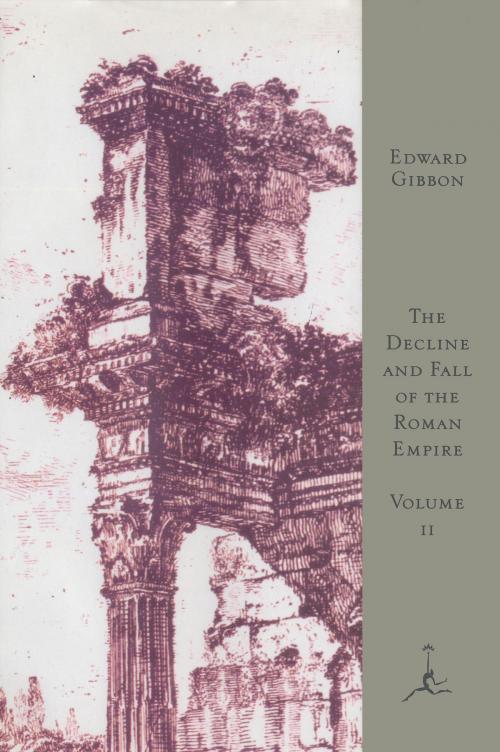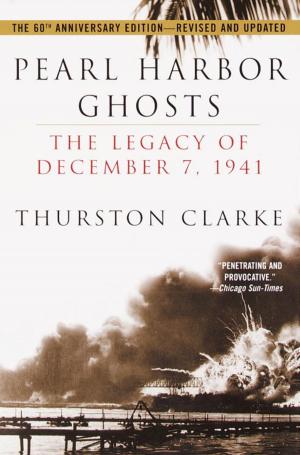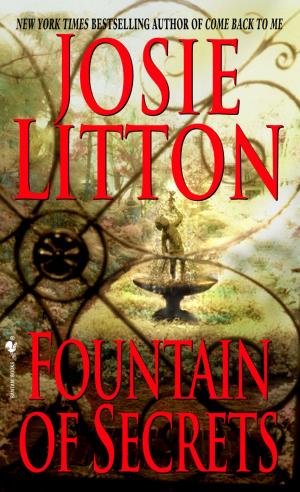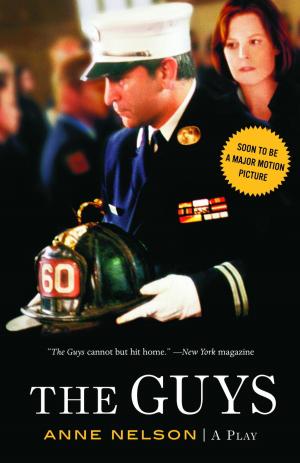The Decline and Fall of the Roman Empire, Volume II
A.D. 395 to A.D. 1185 (A Modern Library E-Book)
Nonfiction, History, Civilization, Ancient History, Rome, Military| Author: | Edward Gibbon | ISBN: | 9780679641476 |
| Publisher: | Random House Publishing Group | Publication: | November 1, 2000 |
| Imprint: | Modern Library | Language: | English |
| Author: | Edward Gibbon |
| ISBN: | 9780679641476 |
| Publisher: | Random House Publishing Group |
| Publication: | November 1, 2000 |
| Imprint: | Modern Library |
| Language: | English |
"I devoured Gibbon," wrote Winston Churchill. "I rode triumphantly through it from end to end and enjoyed it all." Gibbon's magnum opus -- which encompasses thirteen hundred years of history, swinging across Europe, North Africa, and Asia -- remains one of the greatest works of history ever written.
"Gibbon is a kind of bridge that connects the ancient with the modern ages," noted Thomas Carlyle. "And how gorgeously does it swing across the gloomy and tumultuous chasm of these barbarous centuries." Indeed, Gibbon, the supreme historian of the Enlightenment--the illustrious scholar who envisioned history as a branch of literature--seemed almost predestined to write his monumental account of the Roman Empire's terrible self-destruction. "I have described the triumph of barbarism and religion," wrote the author in the famous epigram that summed up his towering achievement in The Decline and Fall of the Roman Empire.
"Gibbon is not merely a master of the pageant and the story; he is also the critic and the historian of the mind," said Virginia Woolf. "Without his satire, his irreverence, his mixture of sedateness and slyness, of majesty and mobility, and above all that belief in reason which pervades the whole book and gives it unity, an implicit if unspoken message, the Decline and Fall would be the work of another man....We seem as we read him raised above the tumult and the chaos into a clear and rational air."
The second volume contains chapters twenty-seven through forty-eight of The Decline and Fall of the Roman Empire.
"I devoured Gibbon," wrote Winston Churchill. "I rode triumphantly through it from end to end and enjoyed it all." Gibbon's magnum opus -- which encompasses thirteen hundred years of history, swinging across Europe, North Africa, and Asia -- remains one of the greatest works of history ever written.
"Gibbon is a kind of bridge that connects the ancient with the modern ages," noted Thomas Carlyle. "And how gorgeously does it swing across the gloomy and tumultuous chasm of these barbarous centuries." Indeed, Gibbon, the supreme historian of the Enlightenment--the illustrious scholar who envisioned history as a branch of literature--seemed almost predestined to write his monumental account of the Roman Empire's terrible self-destruction. "I have described the triumph of barbarism and religion," wrote the author in the famous epigram that summed up his towering achievement in The Decline and Fall of the Roman Empire.
"Gibbon is not merely a master of the pageant and the story; he is also the critic and the historian of the mind," said Virginia Woolf. "Without his satire, his irreverence, his mixture of sedateness and slyness, of majesty and mobility, and above all that belief in reason which pervades the whole book and gives it unity, an implicit if unspoken message, the Decline and Fall would be the work of another man....We seem as we read him raised above the tumult and the chaos into a clear and rational air."
The second volume contains chapters twenty-seven through forty-eight of The Decline and Fall of the Roman Empire.















